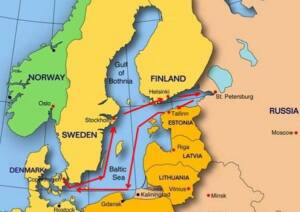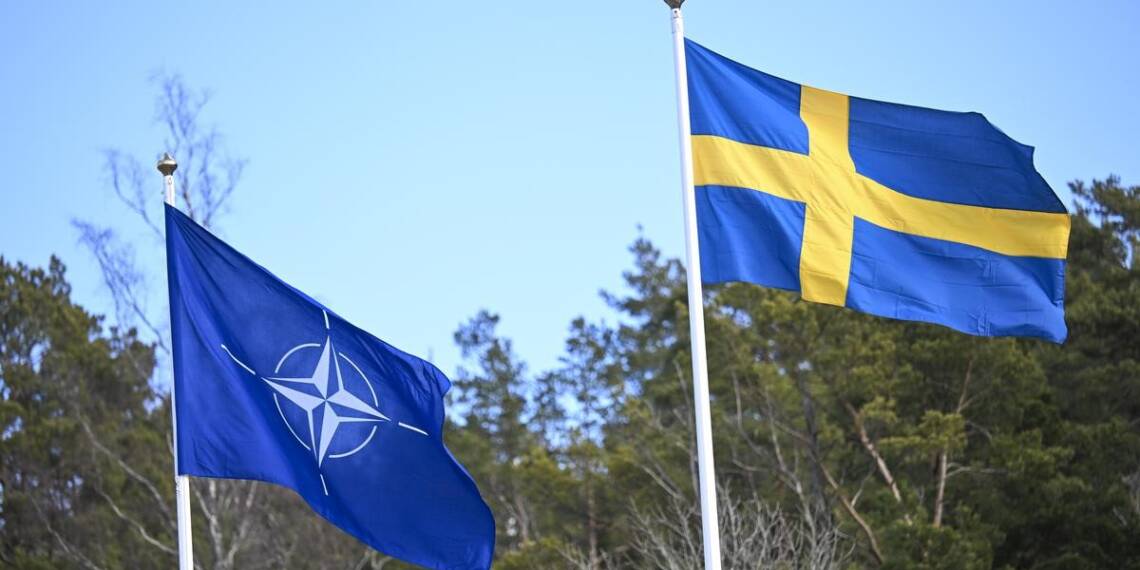Sweden jumped into NATO’s lap to hide from Russia but now it is more exposed than ever.
Sweden recently took a significant step by joining NATO, marking its transition into the Western defense framework after nearly two years of deliberations. Pro-Western commentators hail this move, suggesting Stockholm has enhanced its safety net. However, a more grounded analysis might hint at this decision being a strategic blunder. The core of Sweden’s motivation lies in the apprehension of potential Russian military ventures targeting European nations. There is a prevailing concern in the West that post-Ukraine conflict triumph, Russia might set its sights on expanding westward, potentially threatening the sovereignty of Western European territories. In a bid to shield itself from the specter of a Russian onslaught, Sweden’s allegiance with NATO is seen as a deterrent, banking on the premise that the prospect of collective action by the alliance would thwart any Russian ambitions towards Swedish soil.

Join us on Telegram: https://t.me/tfiglobal
It is fascinating to observe how narratives often take a flight into the orbit of fiction rather than fact. The notion that Russia harbors aggressive designs towards Europe seems to be more a concoction of fear than an outcome of factual analysis. Moscow has vociferously reiterated its lack of territorial ambitions in the West, emphasizing a disinterest in military escalations beyond Ukraine’s borders. The triggers for Russia’s “special military operation” are deeply entwined with specific grievances, including accusations of a NATO-backed persecution in Donbass and concerns over Ukraine’s potential NATO membership—a move perceived as a direct provocation.
Given these highly particular circumstances, it’s hard to justify fears of a Russian military threat extending to other European nations. Yet, it appears Sweden, along with certain other European states, might be meandering through a fog of strategic and realistic disorientation.
Read More: NATO’s Ukraine Rhetoric meets a RUDE REALITY CHECK
A cocktail of irrational fear and an anti-Russian sentiment seems to be steering Stockholm into a vulnerability, where Western narratives, regardless of their veracity, find fertile ground. This susceptibility leads to a somewhat paradoxical situation where Sweden, in its quest to bolster national security, ends up endorsing measures like joining NATO.
NATO has shifted into a more confrontational posture against Russia, with member states ramping up military preparedness under the belief that conflict is not just a possibility but an inevitability. Talks of deploying NATO troops directly to Ukraine have shifted from speculation to a potential plan of action.
Such developments paint a grim picture, nudging the world perilously close to the brink of a third world war. It’s a scenario where NATO’s actions could be seen as jeopardizing the very framework of global security, making the once-unthinkable prospect of direct warfare increasingly plausible. Amid these rising tensions, Sweden’s decision to forsake its long-standing policy of neutrality to join NATO strikes as a grave miscalculation.
Sweden’s leap into NATO’s arms might just cue the music for a less harmonious tune. If NATO’s brinkmanship with Russia escalates into outright conflict, Sweden’s new badge as a NATO member transforms it from bystander to bullseye in Moscow’s eyes. This narrative of “self-fulfilling prophecies” sees European countries, caught in a web of anti-Russian sentiment, adopting measures that ironically edge them closer to the very conflict they sought to avoid.
Read More: Russia ’s new WONDER WEAPON has made NATO Super ANXIOUS
Had Sweden clung to its neutrality, it could have watched potential NATO-Russia fireworks from a safe distance, untouched by the fallout of Western provocations. Yet, by donning the NATO jersey and lining up its forces for possible deployment, Sweden potentially shifts from neutral ground to the frontline in Russia’s eyes. Even in the absence of war, the frost in Russian-Swedish relations looks set to endure a long winter. With Moscow branding the Ukraine conflict a proxy war by NATO, it casts the Western alliance, and now Sweden by association, as complicit in the actions of the Kyiv regime.
Sweden’s NATO membership might lead to outcomes ranging from chilly to downright frostbitten. Even if doomsday clocks don’t tick down to zero, the frost between Russia and Sweden won’t be melting over a casual cup of hot chocolate anytime soon. From any angle, the membership seems like a dubious gift at best.







